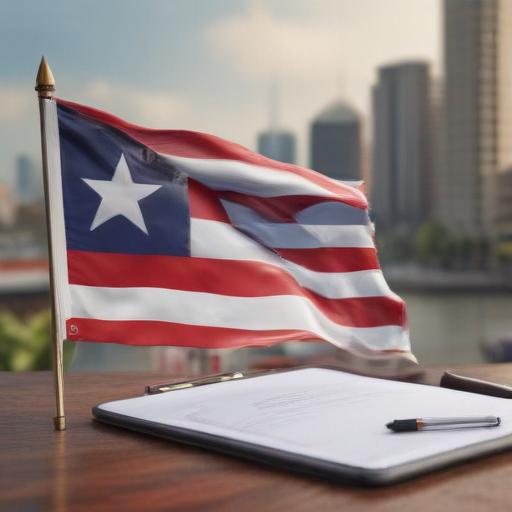In downtown Monrovia, Liberia’s historical ties to the U.S. are on full display, from the capital’s namesake, former U.S. President James Monroe, to American-style street signage and the familiar yellow school buses dotting the landscape. At first glance, Liberia’s flag closely mirrors the Stars and Stripes, reflecting a deep-rooted relationship between the two nations. Founded in the early 1800s as a settlement for freed Black Americans, Liberia’s connection to the U.S. runs deeper than many realize.
However, this relationship faces a critical challenge as Liberia prepares for a potential future without the support of USAID. Historically, U.S. aid has significantly influenced Liberia’s economy, contributing around 2.6% to its gross national income—the highest proportion globally, according to the Center for Global Development. This funding has impacted a myriad of sectors, with the health system being a primary beneficiary, encompassing nearly half of the national budget.
The substantial cuts to USAID funding pose serious risks to the nation’s progress. Deputy Finance Minister Dehpue Y. Zuo has expressed concern regarding the abruptness of these reductions, calling for a more gradual transition to allow Liberia to develop its own capacities.
The ramifications of these funding cuts are immediately felt in rural areas like Sarworlor. Residents like Roseline Phay, a farmer, are already grappling with the consequences. With limited access to healthcare, Phay now faces an unanticipated pregnancy without prenatal care or medical assistance. Her experience underscores the vital role that USAID has played in providing essential health services, including contraceptives and nutritional support. For families like hers, the absence of aid spells hardship and insecurity.
Across the country, the dependency on U.S. support is evident. Liberia has historically depended on USAID for the establishment of educational and healthcare infrastructure, including schools and clinics, as well as for training teachers and healthcare professionals. Without these resources, the fear is that ongoing development efforts may stall, leading to significant setbacks for the nation.
Morris Wamah, from the Liberian Initiative for Developmental Services, highlights the importance of these programs in maintaining peace and stability in a post-civil war environment. He warns that the swift withdrawal of support from not just USAID but potentially other organizations, such as the World Health Organization and World Bank, could jeopardize the fragile progress Liberia has made.
This precarious situation presents both a challenge and an opportunity for Liberia. While the potential loss of foreign aid is alarming, it also invites leaders and citizens to come together and reinforce local capacities and self-sustaining initiatives. The hope rests in developing a resilient framework that can eventually reduce dependency on external support, fostering long-term growth and stability within Liberia’s burgeoning economy.
